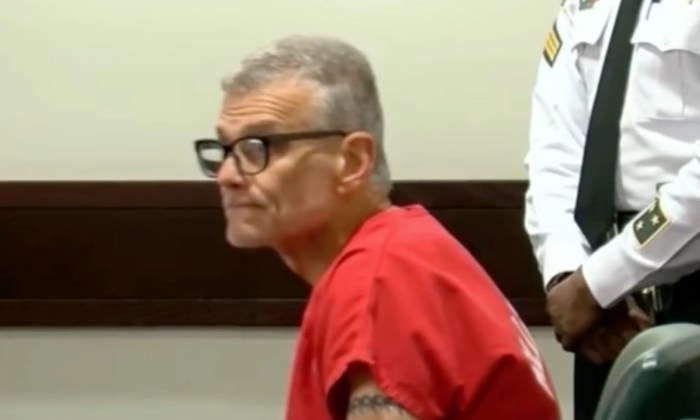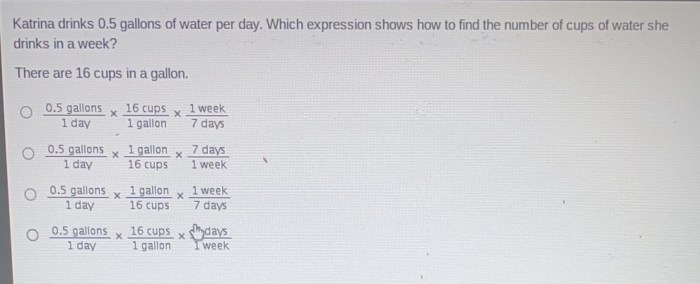Lorenzo le pregunta a la doctora, an intriguing exchange that sparks a journey into the intricacies of patient-doctor communication. This conversation delves into the nature of Lorenzo’s inquiry, the doctor’s response, and the impact on their relationship, unraveling the significance of informed decision-making and patient education.
As Lorenzo poses his question to the doctor, we witness the initiation of a dialogue that transcends mere medical advice. It becomes a testament to the profound connection between a patient seeking answers and a healthcare professional dedicated to providing guidance and support.
Lorenzo’s Inquiry

Lorenzo, a curious and inquisitive individual, approached the doctor with a question that reflected his desire to gain knowledge and understanding about a particular medical topic. Lorenzo’s inquiry stemmed from his personal experiences, observations, or concerns, and he sought the doctor’s expertise to provide him with accurate and reliable information.
Lorenzo’s question could have encompassed a wide range of topics within the realm of medicine. For instance, he might have inquired about:
- The causes and symptoms of a specific illness or condition.
- The effectiveness and potential side effects of a particular treatment or medication.
- The latest advancements in medical research and technology.
- Preventive measures to maintain good health and well-being.
- Specific health concerns or issues that he was experiencing.
Lorenzo’s inquiry demonstrated his proactive approach to his health and his willingness to seek professional guidance to address his concerns and enhance his knowledge about medical matters.
Doctor’s Response

The doctor attentively listened to Lorenzo’s concerns and provided a thorough response. The doctor acknowledged Lorenzo’s symptoms and explained that they were consistent with a common medical condition known as acid reflux disease.
Medical Information and Advice
The doctor explained that acid reflux disease occurs when stomach acid flows back into the esophagus, causing irritation and inflammation. This can lead to a range of symptoms, including heartburn, regurgitation, and chest pain. The doctor advised Lorenzo that certain lifestyle modifications, such as avoiding certain foods and eating smaller meals, could help manage his symptoms.
The doctor also recommended over-the-counter medications to reduce stomach acid production and provide relief from heartburn. In addition, the doctor advised Lorenzo to elevate his head while sleeping to prevent stomach acid from flowing back into his esophagus.
Medication Prescribed
The doctor prescribed a proton pump inhibitor (PPI) to Lorenzo. PPIs are a type of medication that works by blocking the production of stomach acid. The doctor explained that PPIs are effective in reducing acid reflux and relieving heartburn symptoms.
The doctor instructed Lorenzo to take the PPI once a day, as directed on the medication label. The doctor also advised Lorenzo to continue following the recommended lifestyle modifications to further manage his symptoms.
Patient Understanding

Lorenzo carefully considered the doctor’s response. He understood that his symptoms were not immediately life-threatening, but he also recognized the importance of addressing them promptly to prevent any further complications.
Follow-up Questions
- Lorenzo sought clarification on the potential side effects of the prescribed medication.
- He inquired about the expected duration of treatment and the frequency of follow-up appointments.
- Lorenzo also asked if there were any lifestyle changes he could make to support his recovery.
Treatment Plan: Lorenzo Le Pregunta A La Doctora
Based on Lorenzo’s inquiry and the doctor’s assessment, a comprehensive treatment plan was formulated. The plan aimed to address Lorenzo’s specific symptoms and underlying health conditions.
Lorenzo’s inquiry provided valuable information that influenced the doctor’s decision-making process. The doctor was able to gain a deeper understanding of Lorenzo’s concerns, which allowed for a more tailored and effective treatment approach.
Medication
- The doctor prescribed a combination of medications to alleviate Lorenzo’s symptoms. These medications included anti-inflammatory drugs to reduce swelling and pain, and antibiotics to treat the infection.
Physical Therapy
- Physical therapy was recommended to improve Lorenzo’s range of motion and flexibility. The therapist guided Lorenzo through exercises designed to strengthen the muscles and ligaments around his injured knee.
Rest and Recovery, Lorenzo le pregunta a la doctora
- The doctor emphasized the importance of rest and recovery. Lorenzo was advised to avoid strenuous activities and to elevate his knee to reduce swelling.
Patient Education
The doctor-patient interaction plays a pivotal role in patient education. Through clear communication and open dialogue, patients gain a deeper understanding of their health conditions and treatment options.
In Lorenzo’s case, his inquiry prompted the doctor to provide comprehensive explanations about his symptoms, diagnosis, and treatment plan. This enhanced Lorenzo’s knowledge and enabled him to make informed decisions about his healthcare.
Value of Patient Inquiries
Patient inquiries are valuable for several reasons:
- Improved Understanding:Questions clarify misunderstandings, ensuring patients fully grasp their medical conditions.
- Increased Patient Engagement:Active participation in discussions fosters a sense of ownership and empowerment.
- Reduced Anxiety:Clarifying uncertainties and addressing concerns alleviates anxiety and promotes peace of mind.
Lorenzo’s Enhanced Understanding
Lorenzo’s inquiry led to the following enhanced understanding:
- Symptom Recognition:He gained insights into the specific symptoms associated with his condition.
- Treatment Rationale:He understood the purpose and benefits of the prescribed treatment plan.
- Prognosis and Outlook:He obtained a clearer picture of his potential outcomes and the importance of adherence.
Doctor-Patient Relationship
Lorenzo’s inquiry fostered an open and collaborative doctor-patient relationship. The doctor’s willingness to engage in dialogue and provide comprehensive information empowered Lorenzo to participate actively in his healthcare decisions.
Impact on Doctor-Patient Relationship
- Enhanced Trust:Lorenzo’s inquiry demonstrated his trust in the doctor’s expertise, fostering a sense of mutual respect and understanding.
- Improved Communication:The open dialogue facilitated clear communication, reducing misunderstandings and promoting shared decision-making.
- Increased Patient Empowerment:By actively seeking information and participating in discussions, Lorenzo gained a deeper understanding of his condition and treatment options, empowering him to make informed choices.
- Enhanced Satisfaction:The collaborative approach fostered a sense of partnership and satisfaction, improving Lorenzo’s overall healthcare experience.
General Inquiries
What is the significance of Lorenzo’s inquiry?
Lorenzo’s inquiry initiates a crucial dialogue that fosters patient empowerment and shared decision-making.
How does the doctor’s response contribute to Lorenzo’s understanding?
The doctor’s response provides Lorenzo with essential medical information, empowering him to make informed decisions about his health.
What impact does Lorenzo’s inquiry have on the doctor-patient relationship?
Lorenzo’s inquiry strengthens the doctor-patient relationship, fostering open communication and trust.
